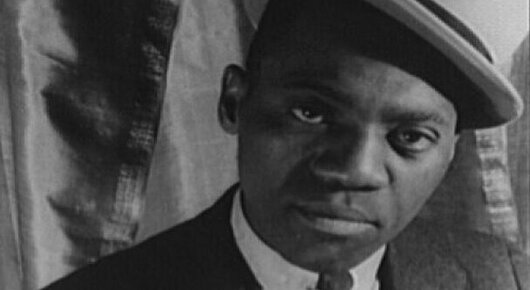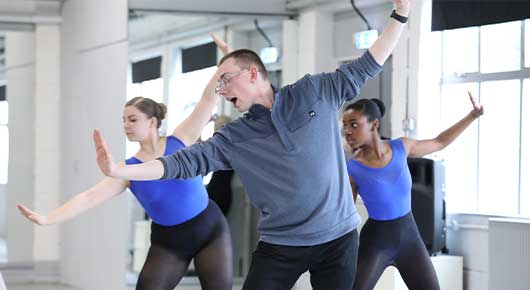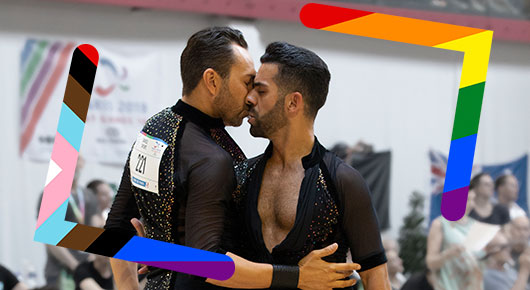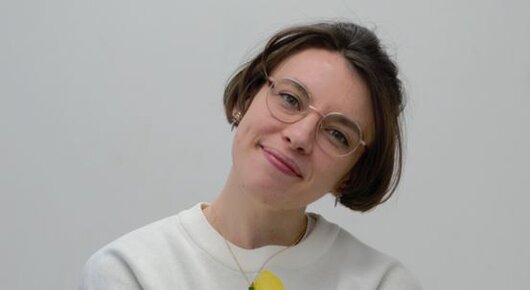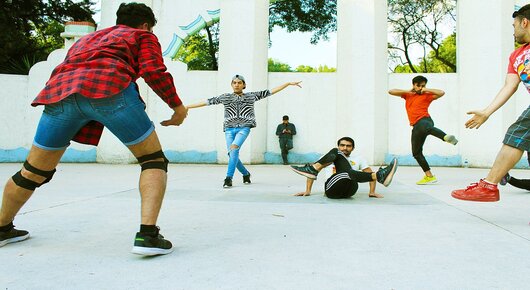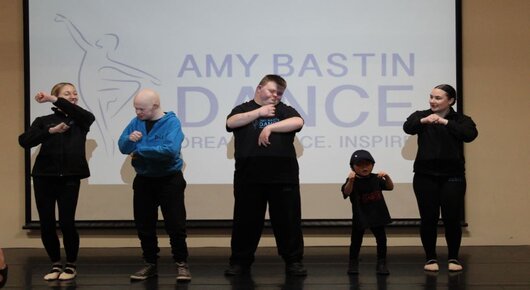9 September 2020
The Deborah Day Theatre School Trust (DDTST) has been operating in the London Borough of Newham for 39 years. Principal and founder Deborah Day facilitated the transition to its charity status nine years ago to create further opportunities for her students.
Deborah approached present and past staff members, pupils and partners in the community to initiate further discussion around the subject of that diversity. As a past long term member of staff, I offered to work with Deborah to put this article together so it could be written from an outside point of view, with inside knowledge to do justice to the work and opportunities that Deborah has built for her community.
As this article is specifically pertaining to the successful long term operation of a diverse school, it is poignant to acknowledge that the school was initially set up in an area that has always been culturally diverse, and an area which has grown even more so in the past 39 years.
Until a few years ago the school was set up at the Hartley Centre on Barking road in the heart of East Ham. In addition to this venue as the main hub, Deborah set up an effective outreach venue to provide opportunities that were previously nonexistent for the young population residing in Poplar. This outreach venue succeeded in supporting many young people into transitioning into the full school programme.
The Hartley Centre (a Church Army run building), was used by the community for numerous events, community groups, prayer, choirs, disability run projects, sports, and adult education. Across culturally diverse areas such as East Ham, there is an underlying feeling of cross community family. DDTST may have hired the centre for the purpose of teaching performing arts classes, but the inevitable connections with other user groups was key to the creation of connected community. User groups actively sought partnership and created partnerships for the good of the whole. Deborah Day said: “This was paramount in the development of the school and the culture of the school that stands today.”
Ambition Aspire Achieve (AAA) founder, Kevin Jenkins OBE, said: “AAA works in partnership with DDTST bringing dance education to disadvantaged and disabled children in the borough.”
The Hartley Centre was pulled down by the local council four years ago, and the school is now situated in Forest Gate in an Academy School. Fortunately DDTST is able to offer the same facilities for the parents and students and has maintained the same ethos and values built at their previous hub venue.
Deborah offers the same training and opportunities for every young person who walks through her door, and like many of us she goes that extra mile for those that need her. Past students working professionally in the industry teaching or performing, return to contribute and work for the school, and past students who are now parents and bring their own children into the school to replicate their own positive experiences.
There are students in the school who have never been to a theatre, or even to the seaside so the school provides opportunities outside the classroom for the students whole educational and life experience.
Deborah explains: “Through applying for opportunities with the Jack Petchey Foundation and further cultivating a relationship on behalf of our school and students, DDTST is aligned with the Jack Petchey Silver Scheme which provides a termly bursary, which helps to fund group experiences and to subsidise the cost of equipment for the school.”
Recently the Jack Petchey Foundation provided the funds for the students to attend a water activity park for the day. “The students had not attended dance classes due to COVID-19 for several months, after all the disruption we are grateful to Jack Petchey for the opportunity for our students to have had a bit of normality,” she said.
Deborah continues: “Of the many partnerships that I have built, our partnership with Newham College of Education is one of the decisions (conscious or otherwise) that has facilitated diverse representation in the education of the arts.” The London Borough of Newham is considered to be one of the most impoverished areas in the UK. Without the secured funding, the reality is that none of the students would have had the opportunity to train and become qualified with the Imperial Society of Teachers of Dancing.” Deborah secured funding from Newham College to offer and deliver the Society’s teacher training qualifications in Modern and Tap dance to 16 to 24 year olds.
“I was able to run this programme for a three year period until the funding was no longer available, but this short time alone has changed the face of my Imperial Society of Teacher of Dancing teaching faculty. Throughout this time period, nine of my own students qualified and are now actively teaching either for DDTST, or have set up their own schools,” she added. “Representation in the face of diversity is an absolute necessity. You cannot be what you cannot see. A multicultural school should have a qualified multicultural teaching faculty (in all genres ).”
Samuel Nicholas, who is a DDTST 2014 graduate, Imperial Society of Teachers of Dancing teacher, The Centre PAC 2016 graduate and industry professional, explained: “It’s why I love coming back to the school to teach, so that the kids who look like me and come from the same background as me can see that it’s possible to have a viable career in this industry. Deborah has always championed diversity.”
A diverse training environment does not necessarily support further careers for considered minority groups. During my time as a member of staff in the school, Society trained members of staff were all white British. Deborah has always had a diverse staff, but to not see that diversity represented in the face of the teaching staff qualified in the syllabus with which you (the students) are devoting your life to training in, certainly alerts us to questioning why this is and how active changes can be made.
Shakira Simpson, who is a DDTST 2013 graduate, DDTST Imperial Society of Teachers of Dancing teaching faculty and third year student at Urdang Academy says: “From a young age, I attended the DDTST. During my time at the school, my classes have always been multiculturally diverse. Never once did I feel out of touch with my surroundings, or feel uncomfortable in a sense where I didn’t belong, as there were people like me from the same backgrounds who had similar life experiences. I strongly believe it’s important for ethnic minority children to have representation, as we are often not portrayed in roles of authority. Now that I’m at a vocational training college, the lack of this representation is especially noticeable. Even in the industry, it’s a lot harder for POC to book jobs. I take pride in not just being a teacher, but in being a role model to all my students, and I hope as time moves on, we will see the progression of more ethnic minority teachers within the qualified teaching members and authority faculty of the Imperial Society of Teachers of Dancing.”
This extends to further training. As a school with an excellent level of core training, many of the students have been accepted into further educational and vocational programmes. Students have communicated back to the school and staff that in a vocational setting they have certainly been a minority and have felt a lack of representation and also a lack of education in these environments to support minority groups. Following the death of George Floyd, Black Lives Matter (BLM) has absolutely put the spotlight on these shortcomings in the past few months.
Students who have attended diverse schools such as DDTST have found themselves in less familiar territory in their vocational establishments. It is important to acknowledge that these are very real experiences and that much change is necessary. Through communication, past students across different institutions have often looked to each other for support and guidance where it does not exist amongst their peers or from the top of their institutions. Some positive change has been made in response to BLM, with professional ex-students mentoring current students in their vocational colleges which has been arranged and facilitated by the institutions individually.
Leah Harvey, who is a DDTST 2013 graduate, LAMDA 2016 graduate and industry professional says: “Due to my own lived experience, I’m able to mentor people who come from similar backgrounds to myself, and who have experienced being in higher educational vocational performing arts establishments as a minority. It’s a step forward in terms of progression, and I’m glad to have the opportunity to be part of this necessary progression, but it certainly highlights that in 2020 there is still an undeniable lack of representation at the top to direct this education and progress, which means that the active change and education of change is now starting from the bottom up. I have the confidence now that I work in the industry to go back and to be part of this change and education, but it’s important to say that it can be problematic when change is trying to take effect from the bottom up due to the balance of power within this type of framework.”
Speaking to Deborah about the experiences that our students in further vocational training are having and have had, she said “It’s a brilliant opportunity to be able to present this article, but it would be fantastic if these conversations could be continued with our students and other students who are having these direct experiences, so that we are not still having these same conversations in 10 years time.”
The first black student accepted on The Royal Ballet Junior Associate programme, some 15 years ago was a student from DDTST. I asked Deborah what her school means to her: “I am proud of my school, I am proud of my students. We work every day to make a difference, whether that be a small daily victory or a life changing path. In the face of adversity the difference that is made is often not as progressive as it could or should be, but we will keep working at it, I believe in what we are doing, and I’m proud of every single achievement our students have made.”
I would conclude with the acknowledgment that a multiculturally diverse area does not necessarily equate to a successfully run multiculturally diverse school. Deborah Day’s approach to providing equal opportunities for her school in the community is the measure for such a success.
